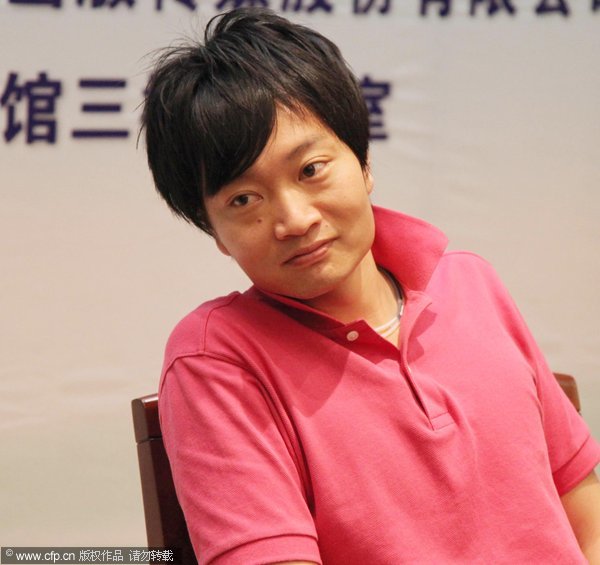Yoshikazu Kato, one of the best-known Japanese columnists in China, has apologized to Chinese readers after confessing on his micro blog that he exaggerated his educational background.
"In my previous remarks, either publicly or privately, I mentioned that I was admitted as a student of the University of Tokyo but I turned down the opportunity, which is not the truth. I apologize for the confusion and misunderstanding caused by my immaturity, arrogance and ignorance. And I will try my best to endeavor to become a more trustworthy person," Yoshikazu wrote on Sina Weibo, a Chinese micro-blogging website, on Wednesday.
 |
|
Yoshikazu Kato, Japanese columnist in China. [File photo/CFP] |
Yoshikazu, 28, came to China in 2003 as an overseas student at Peking University. After receiving a bachelor's degree and master's degree there, he became a producer, emcee, and later a columnist of a Chinese website owned by the Financial Times, and gained popularity for his observations on Sino-Japan policies.
In May 2008, President Hu Jintao received Yoshikazu at Peking University; Yoshikazu was a representative of overseas students of the university.
Yoshikazu has published several books, translated a Japanese book into Chinese and has given hundreds of media interviews.
The revelations about Yoshikazu have come to light several months after he left China take a research position at Harvard University in the United States.
On Wednesday, Japanese media Shukan Bunshun wrote a story about Yoshikazu, accusing him of lying to Chinese media about his admission to the University of Tokyo.
Huang Xueqing, a journalist with China National Radio in Japan, also said that Yoshikazu wrote in his book published in China, that he was a government-sponsored student of Japan. But in his book published in Japan, Yoshikazu said it was China's Education Ministry that sponsored his study.
Zhu Feng, a professor who taught Yoshikazu at Peking University, was quoted on Thursday by China National Radio saying: "Yoshikazu is a smart young man, but as his teacher, I have the impression that he tends to boast sometimes."
Whether Yoshikazu had or had not been admitted to the University of Tokyo would not have influenced Peking University's decision to admit him, Shukan Bunshun quoted a faculty member of Peking University in charge of international student admission, as saying.
On Thursday, some Chinese media criticized Yoshikazu for exaggerating his academic credentials, but Feng Wei, a professor specializing in the history of Japan at Fudan University, said Chinese should be more tolerant.
"I have met Yoshikazu, and I think he is a good person. Exaggerating your educational background is different from faking a diploma or certificate," Feng said.
"The media questioned his enrollment with the University of Tokyo two years ago. Why did Shukan Bunshun bring it up again?
"As Sino-Japanese relations are strained now, Shukan Bunshun, an influential magazine in Japan, will give Japanese people the impression that China is an easy place for liers to get away with stuff, as Yoshikazu was such a popular Japanese in China," Feng said.
chengyingqi@chinadaily.com.cn
